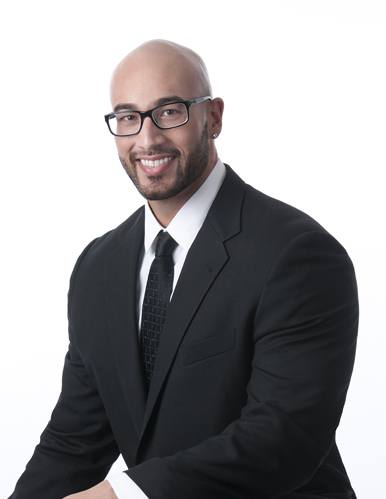
The fundamental activity of medical science is to determine the ultimate causation of disease.
W. Trotter, M.D.
Conventional wisdom states that aging is simply a part of life and that there’s very little we can do about it. Yet, aging is not a disease, but rather, a natural process that can be managed. In fact, there are many ways we can take control over its effects. While we may not be able to stop our biological clock, the key to enjoying a rich quality of life at every age is meeting the challenges that arise during the individual aging process.
This is precisely where Cenegenics comes in. Our researchers believe that wellness optimization is possible at every age by pursuing peak functioning – both cognitively and physically – and supporting the lowest possible disease risk. We aim to extend the health span through science-based medicine, helping patients enjoy a better quality of life through all of its many phases. With a staff of highly trained clinicians, we give our patients the tools and resources they need to confront health challenges head-on and regain control of their vitality.
Our approach is evidence-based, meaning you can rest assured that your individualized program is backed by leading science and research. Discover how we leverage science to help our patients optimize their wellness here.
Hormone regulation is just one way we help patients. Hormone imbalances can lead to a number of frustrating symptoms, and when clinically indicated, hormone replacement therapy can help patients overcome these challenges to achieve optimized health.
As we age, both men and women experience a decrease in hormone levels. Both sexes rely on a critical balance of estrogen, testosterone, thyroid, DHEA (dehydroepiandrosterone), and cortisol. Each of these hormones plays a specific role in maintaining an environment for optimal health.
For instance, testosterone also supports libido, while also improving energy, strengthening bones, and promoting muscle tone. DHEA and cortisol work together to control stress, energy, and immunity. There are many more wellness factors for which hormones are largely responsible, which is why diminished hormone levels can lead to a litany of symptoms and a slow, steady deterioration in health.
Estrogen enhances libido and protects against serious diseases such as Alzheimer’s and osteoporosis. Estrogen is also critical for supporting heart health, as it increases HDL (“good”) cholesterol while decreasing LDL (“bad”) cholesterol, smooths and dilates the blood vessels to support optimal blood flow, and soaks up free radicals.
Over time, some of the most pronounced symptoms resulting from declining hormone levels are:
In particular, both men and women struggle with decreased lean muscle and increased body fat, which can set them up for serious concerns such as insulin resistance. As the body begins to ignore the signals sent out by insulin, it causes glucose to build up in the bloodstream. Over time, this puts added pressure on the pancreas, and can ultimately cause it to burn out, leading to type 2 diabetes.
Clearly, hormones perceptibly alter our physical, sexual, and cognitive functions, often with psychological complications. Yet, until recently, these changes were simply accepted as aspects of aging, forcing adults who faced legitimate health challenges into the background.
We realize now, however, that delaying premature disabilities is a viable option. The body’s hormone receptors don’t lose their ability to respond to messages; they’re simply waiting to be filled. Thus, restoring hormonal balances can help adults regain their quality of life.
The primary mechanism behind the experienced symptoms of aging is diminishing hormones—in both sexes. Since men and women have the same hormones, aging takes place regardless of gender. The nuances in symptoms are distinguished only by amounts and time.
Women in menopause, in particular, experience a dramatic drop in estrogen during menopause. Symptoms are often abrupt and encompass issues like:
For men, andropause symptoms creep up slowly over a 20-year period. Like women, however, they too experience difficulty in sexual arousal, weight gain, cardiovascular concerns, aches and pains, and others. Thus, for both men and women, restoring a more youthful hormone balance is the key to better health.
Here are a few of the most noteworthy changes that tend to occur as hormones decline and the science behind them:
The common denominator in all of the age-related symptoms discussed above is diminished hormone levels. Yet, there’s more: the combination of low testosterone levels and the effects of the fundamental aging process creates an excess production of one potentially dangerous stress hormone, cortisol.
Excess cortisol raises its own concerns, potentially leading to issues such as immune system dysfunction, arterial wall damage, fat accumulation, bone loss, blood sugar issues, and brain cell injury. An overabundance can even suppress testosterone production, promoting premature aging.
No matter your andropausal/menopausal profile, however, Cenegenics craft a synergistic program tailored to your needs to escape these physical, emotional, and mental consequences of aging through hormone optimization.
Before we get into the specifics of precisely how Cenegenics can support wellness optimization, let’s take a closer look at the differences between male andropause and female menopause.
While male andropause is every bit as real as female menopause, the fact that it takes place more gradually has caused it to fall through the cracks, making it less of a focus among the medical community. Very few doctors are trained in andrology, the counterpart of gynecology. This results in a serious health crisis for men, putting them at risk for premature disease and early mortality.
In addition to the symptoms of decreased testosterone described above, men also experience an increase in estrogen levels. As a result, aging men often suffer the dual effects of too little testosterone and estrogen dominance, leading to an imbalance that may cause debilitating health and performance problems such as erectile dysfunction.
Many men turn to testosterone replacement as a solution. Yet, taking testosterone by itself—without monitoring other hormones—is not a judicious approach. In fact, it could be dangerous, as testosterone may convert into even more estrogen, potentially worsening the hormone imbalance and increasing the risk for heart attack, stroke, or prostate cancer.
In women, menopause is defined as the time in life when menstruation ceases completely. Ovaries decrease their estrogen output, ultimately impacting the entire endocrine system. The process takes three to five years, beginning with perimenopause.
During perimenopause, a woman’s follicles begin to lose their ability to mature and release an egg. Ovulation may not occur regularly, and menopausal symptoms such as bloating, mood swings, and weight gain transpire. Many symptoms occur gradually and may initially appear to be unrelated, which is why women are often misdiagnosed. For example, while hot flashes are an obvious indication of the onset of perimenopause, other women may experience other symptoms first, including sleep disturbances, fatigue, and depression.
In addition to diminished estrogen and progesterone, reduced testosterone can also become a factor for women during menopause. Altogether, women experience the broad range of symptoms described above, with each varying in intensity and duration from one individual to the next. Some women also undergo a complete or partial hysterectomy to remove reproductive organs, further increasing the need for a highly personalized approach to hormone optimization.
Recently, researchers have reversed previous findings of hormones and heart risk. In 2007, researchers completely changed their stance on hormone replacement therapy (HRT) for women, debunking the original theories after a fuller analysis was done on the Women’s Health Initiative generated in 2002. Now, researchers say HRT is effective and safe for women when administered under the proper clinical guidelines. Moreover, women using HRT from ages 50 to 59 actually had a 30% lower risk of dying of any cause compared to those given a placebo.
While the WHI study was originally hailed as a definitive body of research into women’s health, it looked only at women who were already off hormones for at least 10 years, which automatically put them at a higher risk for cancer and heart disease since the endocrine system diminishment increases disease risk.
Moreover, it looked at only one type of estrogen. We now know that each woman should receive a tailored dose of hormones when clinically indicated and have blood levels monitored regularly for optimal results and safety.
While insulin resistance can be a byproduct of hormone changes that occur with age, it’s also possible for it to occur in younger adults. Insulin is the hormone produced by the pancreas which helps glucose in the blood enter cells so it can be used for energy. Under normal circumstances, blood glucose (also known as blood sugar) rises, and the pancreas releases insulin into the blood.
Subsequently, insulin lowers blood sugar to keep it within a healthy range. When the liver, muscles, and fat no longer respond properly to insulin, however, they can no longer take glucose from the blood. The pancreas goes into overdrive as a response, producing more insulin to help glucose reach the cells. Left unaddressed, this leads to prediabetes and potentially type 2 diabetes. One in three U.S. adults has prediabetes.
While being above the age of 45 can increase the risk for insulin resistance, factors such as family history, a sedentary lifestyle, and being overweight or obese also contribute to an individual’s risk. In addition, individuals with metabolic syndrome, a combination of conditions including high blood pressure, excess abdominal fat, and abnormal cholesterol levels, are also more likely to have insulin resistance.
Preventing and addressing insulin resistance is an important pillar of wellness optimization at any age. While insulin resistance in itself typically does not present any symptoms, its subsequent condition, type 2 diabetes, can significantly impact a person’s quality of life.
At Cenegenics, you can count on progressive, evidence-based solutions for your health, delivered by dedicated clinicians who are specifically trained and certified in wellness optimization and Age Management Medicine. Each of our doctors has completed the mandatory Physician Training & Certification in Age Management Medicine, and only a select few pass through our rigorous training.
Our highly-trained doctors approach each patient’s unique situation by starting with the facts. We begin with a comprehensive evaluation to determine your specific metabolism, endocrine functionality, and overall physiology. Next, we take corrective actions to help your body function at the highest level possible, integrating a synergistic program of nutrition, exercise, nutraceutical supplementation, and hormone optimization if clinically indicated.
To restore healthy endocrine levels, our doctors use hormone optimization, with the goal of bringing levels to the optimal range based on the patient’s age, medical history, and genetic makeup. This affords each patient the best opportunity for a healthier, more vigorous life.
The endocrine system is complex, relying on communications from various points throughout the body to function. The primary components of the system include the pituitary gland, pineal glands, thyroid gland, parathyroid glands, adrenal glands, pancreas, and gonads. At Cenegenics, we believe each of these glands must perform in perfect balance to achieve hormonal harmony.
In particular, we concentrate on reducing levels of two major age-promoting and degenerative disease-promoting hormones: insulin and cortisol. Working in concert with nature, we stimulate the body to make its own hormones. We’re vehemently against the use of foreign substances used to mimic hormone activity and instead supplement with hormones that function as closely as humanly possible to hormones produced by the body. Hormonal evaluation and relevant therapy, with a conscientious lifestyle management program, set the course towards:
As mentioned earlier, the differences between men’s and women’s needs for hormones are quantitative, not qualitative. Both sexes have and require levels of androgens/androgen precursors. Testosterone, estrogen, and progesterone are essential for normal reproductive function. Interestingly, however, all of these hormones can convert into other hormones, depending on the body’s needs. Here, we’ll take a closer look at how each of these hormones works, and how Cenegenics helps patients optimize their levels.
Testosterone isn’t just a sex hormone; it has many other uses including maintaining lean body mass, heart function, and blood pressure control.
In women, testosterone is produced in the ovaries and adrenal glands. If a woman has her ovaries removed, she thus loses more than half of her testosterone abruptly, along with 80% of natural estrogens. Like men, women need adequate testosterone for peak:
In men, testosterone production is initiated in the pituitary gland, deep in the brain. Throughout their 30s, 40s, and 50s, this gland may slow down and stop producing the stimulating luteinizing hormone which triggers the testicles to produce testosterone.
While clinical indicators of declining testosterone may give a care provider the notion that an individual may be an ideal candidate for testosterone replacement, a complete endocrine profile is necessary for creating the most effective testosterone supplementation program. Once therapy begins, follow-up tests must be monitored to ensure safety and effectiveness.
Estrogen also occurs in both men and women, but while men make sufficient estrogen for their needs, women experience depletion during their menopausal years. Estrogen is a powerful antioxidant and plays an important role in heart valve health, vaginal and bladder tissue elasticity, libido, brain health, and more. There are three naturally occurring estrogens: estradiol, estrone, and estriol. Balance among estrogen levels is key for good health, which is why women should turn to clinicians specializing in HRT for hormone optimization.
Other hormones include the thyroid hormone, which affects metabolic rate and body temperature, as well as adrenal steroids which release cortisol and are critical for life. If these hormones are out of balance, it can lead to immune system impairment, fatigue, blood sugar problems, and fat accumulation, among other issues.
DHEA, on the other hand, is the precursor of testosterone and other hormones. It circulates in the bloodstream, where it can cascade into either estrogen or testosterone, as needed. Cenegenics professionals perform a complete endocrine panel to determine whether any of these hormones could be out of balance.
Human growth hormone, or hGH, is the master hormone secreted by cells. While it contributes to tissue growth in childhood, it remains essential for other vital functions in adulthood. This master hormone affects all other hormones, organs, and body cells. It’s necessary for repair and restorative abilities at the cellular level.
Yet, hGH therapy is not for everyone, which is why Cenegenics only recommends it for patients with a proven adult deficiency. For those who are deficient, HGH therapy can increase libido, lean muscle, bone density, skin thickness, exercise capacity, renal blood flow, and general feelings of wellbeing.
An assessment of not only clinical levels but also deficiencies indicated by symptoms can indicate an adult hGH deficiency. Your Cenegenics physician will help you understand and assess all available information as objectively as possible to help you make an informed decision for your personalized treatment plan.
Even in patients who may not benefit from hormone regulation, Cenegenics can still provide effective treatments to support optimal functioning and minimize disease risk. Our dedicated staff of wellness optimization clinicians works closely with each patient to identify their specific needs and make tailored recommendations suited to their unique lifestyle.
We understand that many patients have dietary restrictions and preferences, as well as busy schedules which may not be able to accommodate hours-long workout regimens. We also know that compliance is the most important factor in any pursuit to improve wellness. For this reason, we provide accessible yet appropriately challenging fitness plans, along with manageable dietary changes, to empower patients to make changes that will help them feel better, both now and into the future.
With compliance, the results include long-term weight management, reduced risk of metabolic syndrome and the conditions that accompany it, improved energy and libido, and better overall functioning.
Cenegenics maintains prescribing guidelines for all hormones based on research and evaluation of multiple controlled studies from peer-reviewed journals. We have engaged outside counsel to conduct a review of prescribing guidelines and believe them to be consistent with the law and FDA guidelines. Our evidence-based approach incorporates hormone modulation to help patients regain and maintain metabolic and endocrine functions at the upper end of the normal range, adjusted for the patient’s age, thereby creating the best opportunity for a healthier and more vigorous life.
Regardless of whether a need for HRT is clinically indicated, we provide strategic, individualized wellness optimization programs suited to each patient’s specific needs. Some of the most noteworthy benefits our patients experience with our personalized programs include boosted energy, long-term weight management, enhanced libido, improved cognition, and better sleep.
We also help patients control their risk for serious diseases, including heart disease and stroke. We go beyond HRT to help each patient optimize their wellness with nutrition, exercise, and nutraceutical supplementation to facilitate natural hormone production by the body, and only use hormone supplementation as part of our therapeutic approach when clinically indicated.
At Cenegenics, our goal is to inform you about your unique health issues, based on substantiated information uncovered through our extensive Elite Health Evaluation. You’ll understand any weak links in your health and learn about different, effective ways to address them. Our clinicians will also assist you in prioritizing options since our programs never rely on an all-or-nothing approach.
In other words, you’re in full control of your health, both now and into the future. If you’re ready to start feeling your best, contact your nearest Cenegenics location to learn more.
Our world-class physicians create a personalized plan to help you feel 10+ years younger. You’ll be more energetic, lose weight, sleep better, have more libido, and think more clearly. Click below to schedule a free consultation with one of our physicians. It’s quick + easy.
Key Resources
This guide was produced with contributions from the following key resources:
The Cenegenics Education and Research Foundation
The Textbook of Age Management Medicine Volume 1: Mastering Healthy Aging Nutrition, Exercise, and Hormone Replacement Therapy
The Cenegenics Education and Research Foundation
The Textbook of Age Management Medicine Volume 2: Mastering Healthy Aging Nutrition, Exercise, and Hormone Replacement Therapy
Textbook Authors:
Jeffrey Park Leake, M.D., CPT
Dr. Jeffrey Park Leake is a Partner and Director of Education at Cenegenics Elite Health specializing in age management and wellness. Having trained hundreds of physicians worldwide, Dr. Leake is also the Director of Education for the Clinical Strategies for Healthy Aging course at AMM Educational Foundation.
Todd David Greenberg, M.D., CSCS
Dr. Todd Greenberg is a practicing physician with a broad range of expertise, including wellness, exercise, sports injuries, and MRI of sports injuries. He is a Radiology Clinical Associate Professor at the University of Washington.
Additional Resources
The Main Cause of High Cholesterol | Road Map to a Heart Attack
How to Lower Cholesterol Levels With These Easy Lifestyle Changes
How a Poor Diet Causes Low Libido
When Was the Last Time You Got a Full Night’s Rest? Here are 5 Tips to Help You Sleep Like a Baby!
Testosterone Replacement Therapy | How Is the Prostate Affected?
A Comprehensive Guide to Prostate Health
Youth is a Feeling – Not A Number
Getting Back on Track with Diet & Exercise: Staying Motivated
Telomere Function in the Aging Process
See Why Cenegenics Is the Gold Standard of Men’s Health with the VO2 Max Testing Machine
 Contributor: Rudy Inaba Vice President of Health Performance
Contributor: Rudy Inaba Vice President of Health Performance
Rudy Inaba is Cenegenics’ Vice President of Health Performance. He is a recognized fitness and sports nutrition consultant with nearly 15 years of experience in clinical exercise physiology and lifestyle management. After pursuing his Master of Science in Clinical Exercise Physiology at the University of Nevada Las Vegas, Rudy joined Cenegenics where he leads 19 clinical locations nationwide in their advancements in kinesiology, nutritional biochemistry, and their analyses of industry research & market trending.


